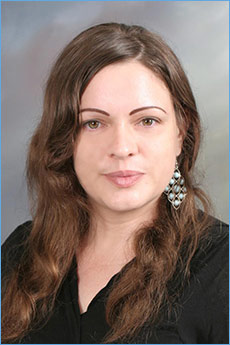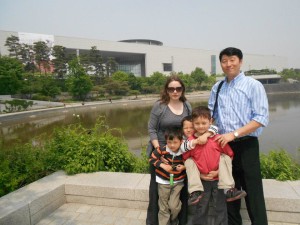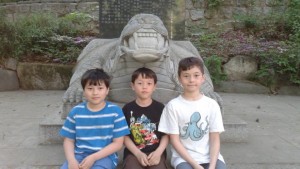Confessions of a Trailing Spouse
When opportunity knocked for my husband to work in Korea, he opened the door and we all walked through it. We welcomed the adventure, but knew better than to expect it to be easy. While waiting at the airport for our flight from Charlotte, NC to Seoul, I remember making small talk with one elderly lady, mentioning our upcoming trip to Korea. “How nice! What a lovely adventure for the kiddos,” she said. But when I mentioned that we were moving there for good, she recoiled like a rattler and asked, “And you are happy about that? Uprooting your kids and all? What do you think that will do to them?” I did not know what to say to that, honestly. I simply nodded, thanked her for her concern and answered the boarding call for our flight as she prayed the Rosary.
I, too, had been wrestling with the same concerns about how our family would cope with being so abruptly and severely uprooted. Our children had all started elementary school; but how would they handle going to school one week in their American classroom, and then the next in a class where they did not speak the language or know anyone? Did we really have a right to do this to them? I also felt a great deal of shame and self-loathing at the fact that perhaps if I had “made it” (i.e. six figure salaried career) as opposed to working freelance from home; then we would not be transplanting ourselves in a society I felt we would never really belong in. And because I had not “made it” despite having a master’s degree, I had no choice but to follow my husband, which, as an American, I felt as a sign of concession, rather than a sound decision. But a flicker of faith deep down assured me it was the right one, despite my apprehensions. To assuage my misgivings, I devised myself a master plan. I figured that we would all have this great adventure for perhaps a couple of years, tops, pick up a new language, and then go back to where we belong, given the right opportunities.
Four years later, however, we still remain. And throughout that time, life in Korea has, for the most part, defied the grim expectations I had had at the airport that day. Since then, my children have picked up Korean, which now far exceeds my own. And I am happy to report that they have been warmly welcomed in their Korean school, with hardly any incidents of bullying. In fact, their “Americanisms” have made them an item, with parents encouraging their classmates to befriend my sons to practice English and learn about America, according to their teachers, with whom I have learned to communicate with in steadily improving “Konglish.” As my sons have adapted more seamlessly than expected, however, they still identify as Americans and long for their old school, even though language was no longer an issue. I do, however, miss helping them with homework and projects, which are now all in Korean—an area where my children far exceed me in skill. I also now shouldered the added task of working with them to keep up their English literacy— one area I could still be of help to them.
My own adaptation to Korea, however, had been far less smooth. As a seasoned wife, mother, writer and Marine veteran already in her mid-30’s, I was already set in my ways, determined not to let my residence in this geographic location change who I was as a die-hard, red-blooded American. I was so determined not to change and assimilate, I refused to study Korean, at first, or consider working outside the home, for fear of becoming “too attached.” I was determined not to let anything get in the way of moving back to the U.S. at the earliest opportunity. After all, most Americans and westerners just came and went, right? In other words, I developed a sort of “cultural resistance” toward assimilating in Korea. I figured that since I already knew where I belonged, and spoke the language of where I belonged, there was no point in changing who I was. So I just went through the motions of caring for my family, writing my novels and taking in any English editing work that came my way. I played it safe by only associating with English-speaking people, and brushing up only on “survival” Korean—enough to shop, bargain, ask directions and give taxi directions, with a little small talk thrown in for good measure.
But the longer we lived here, the more Korean life started to grow on me—the way it embraced my children, and tried to embrace me, despite my resistance of it. And as I got to know several westerners, including our landlord, who have stayed for the duration in Korea, I came to welcome the idea of staying on, and my resistance began to peel. I began to think that perhaps, grasping the Korean language and culture could make me a better American. I began to consider many positives about Korean life that I had overlooked in my staunch resistance, one of which is the safe environment that allows me to walk around alone at night without ever worrying about my safety. My children can also develop their independence by freely going places without fear of getting kidnapped, or their parents getting arrested for “child endangerment.” And most of all, the overall climate of respect for elders and authority, which enables parents and teachers alike to raise up and educate caring and conscionable citizens.
All in all, I can say that our journey here in Korea had definitely been one of faith; and I am convinced that it is our faith that has given us, especially myself, the ability to overcome adversities and grow as world citizens.



 Follow
Follow